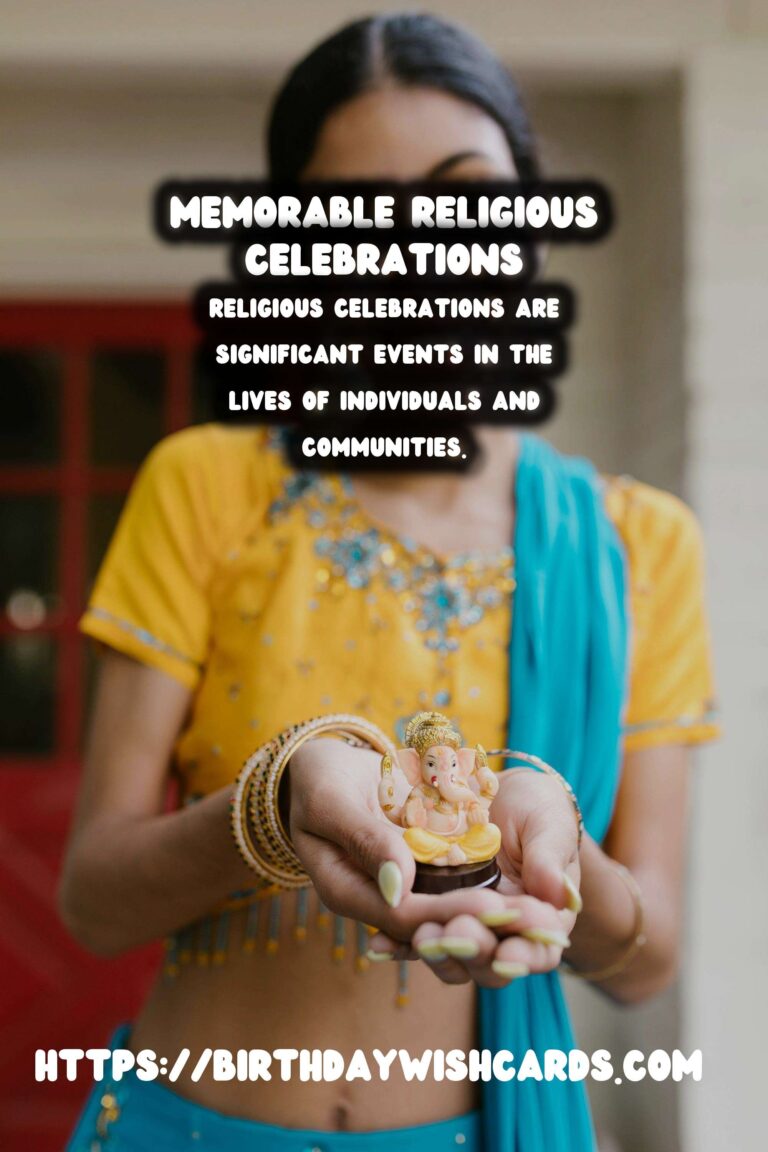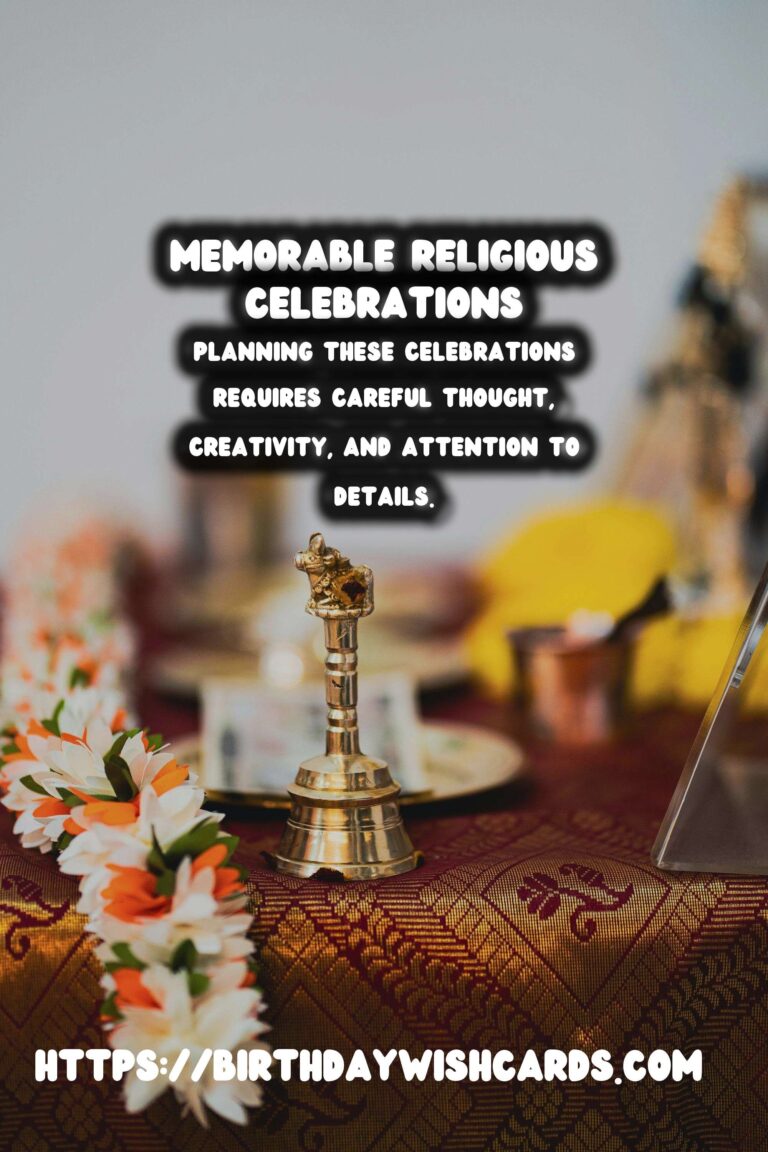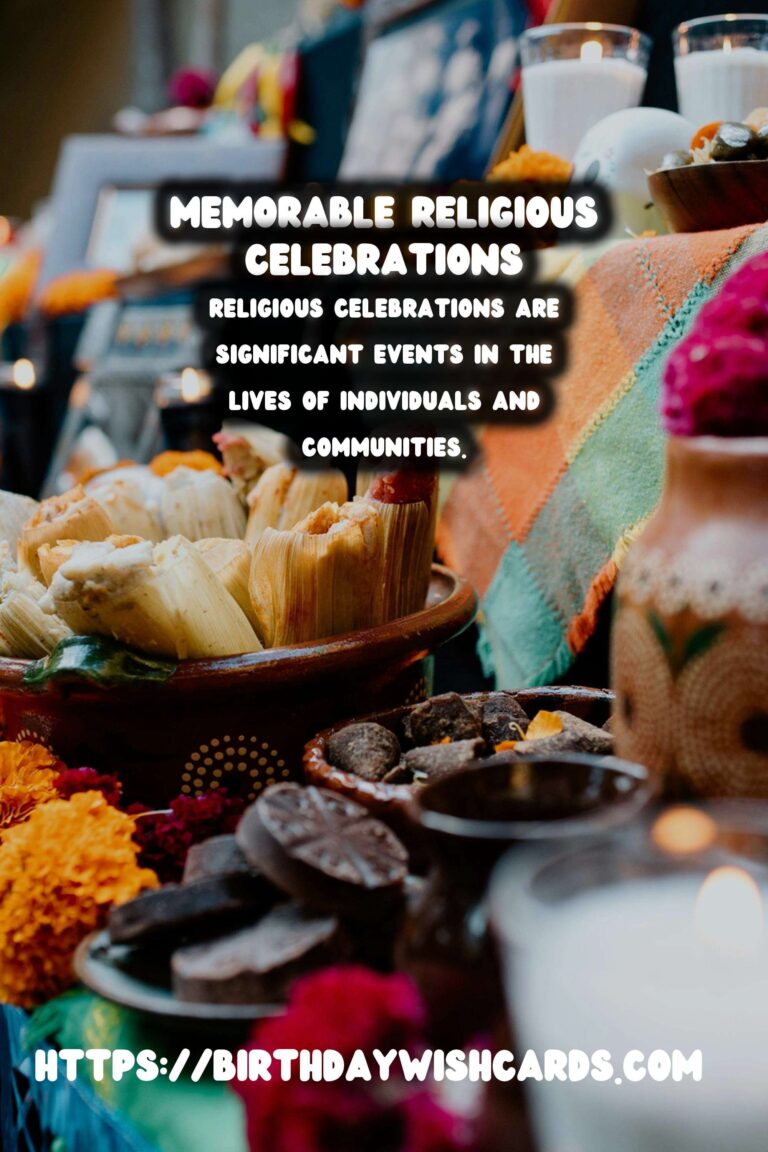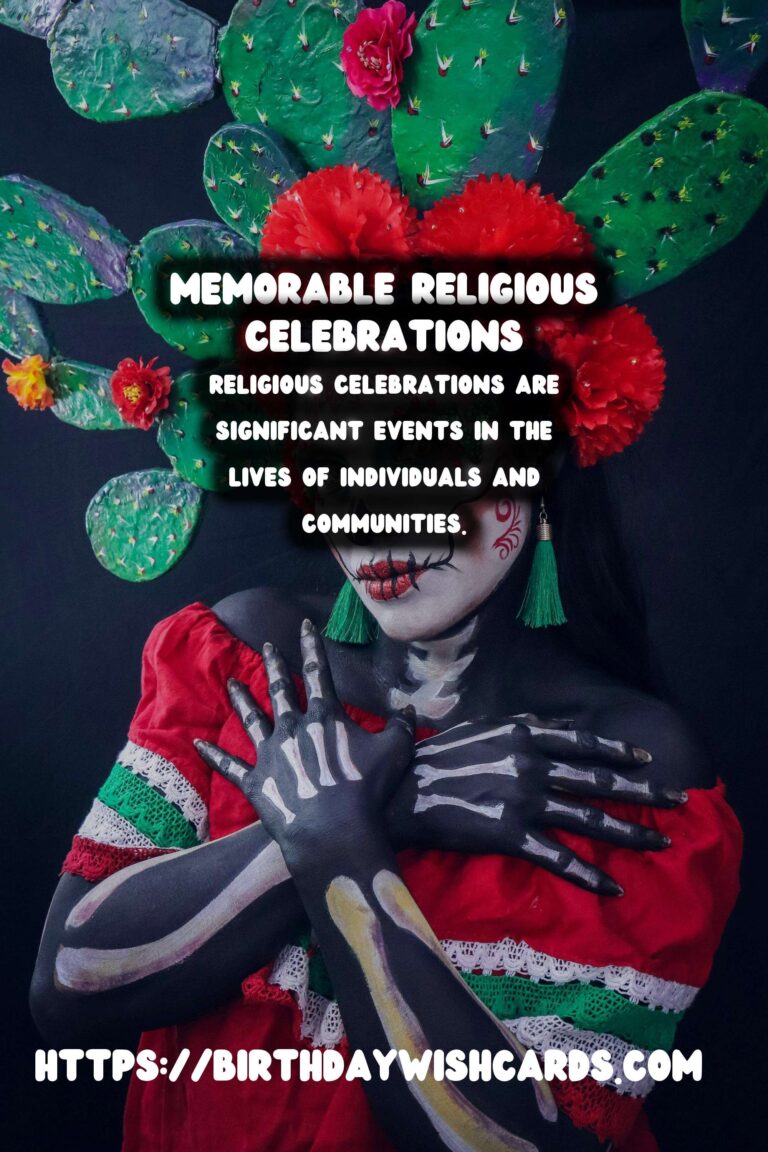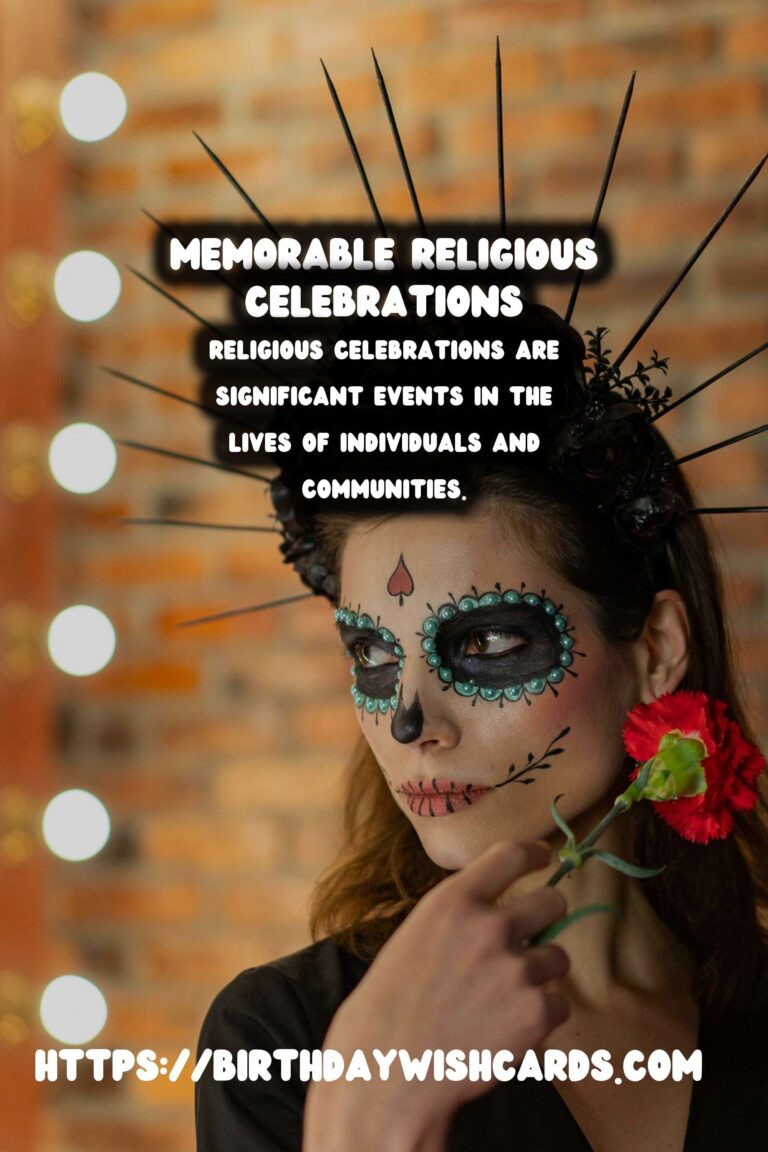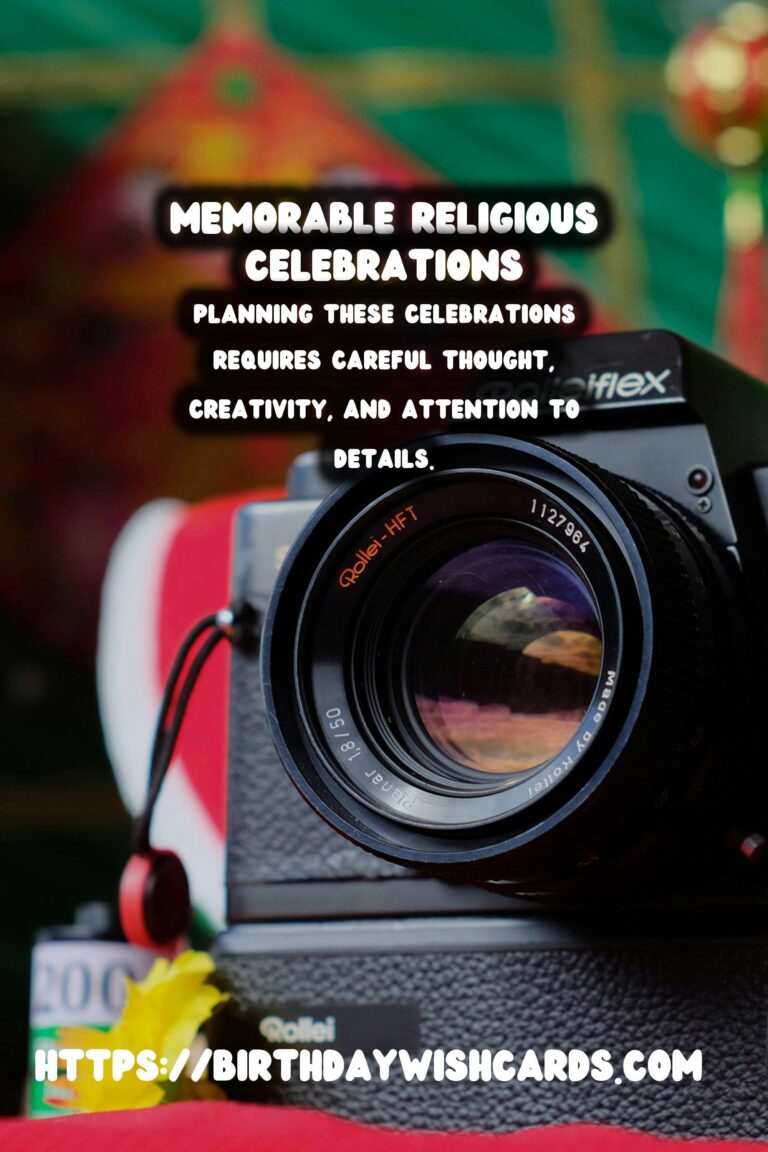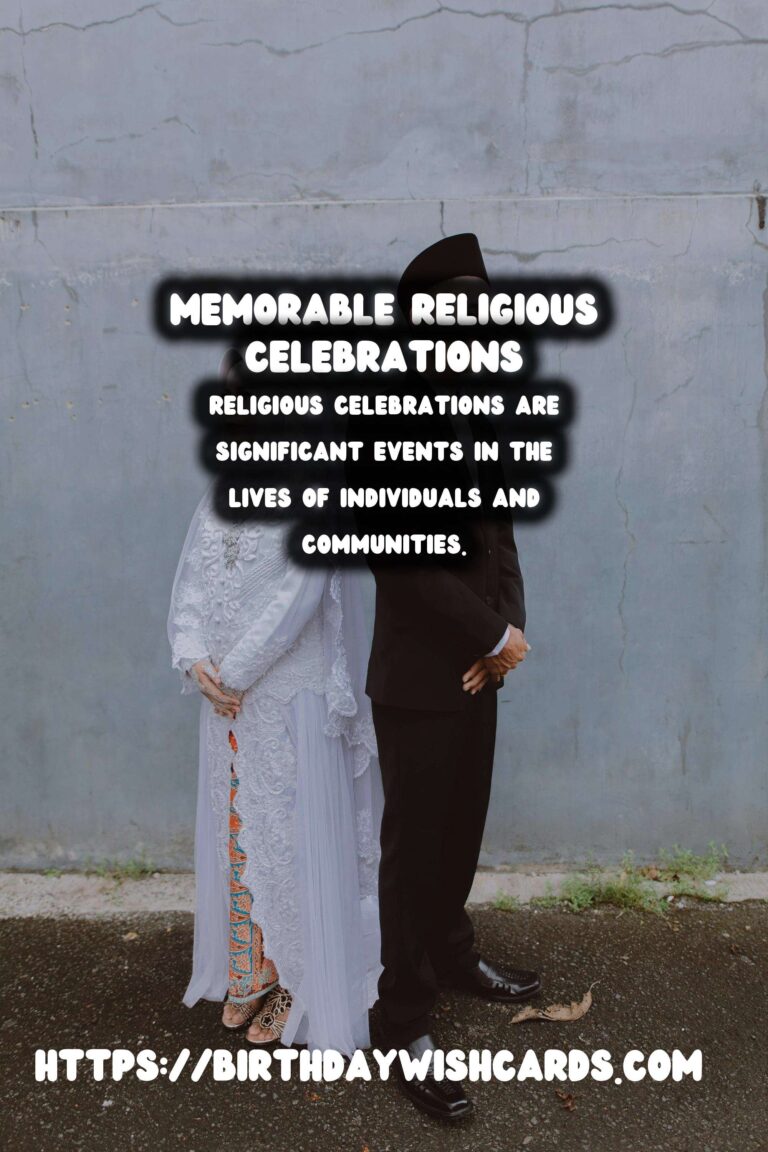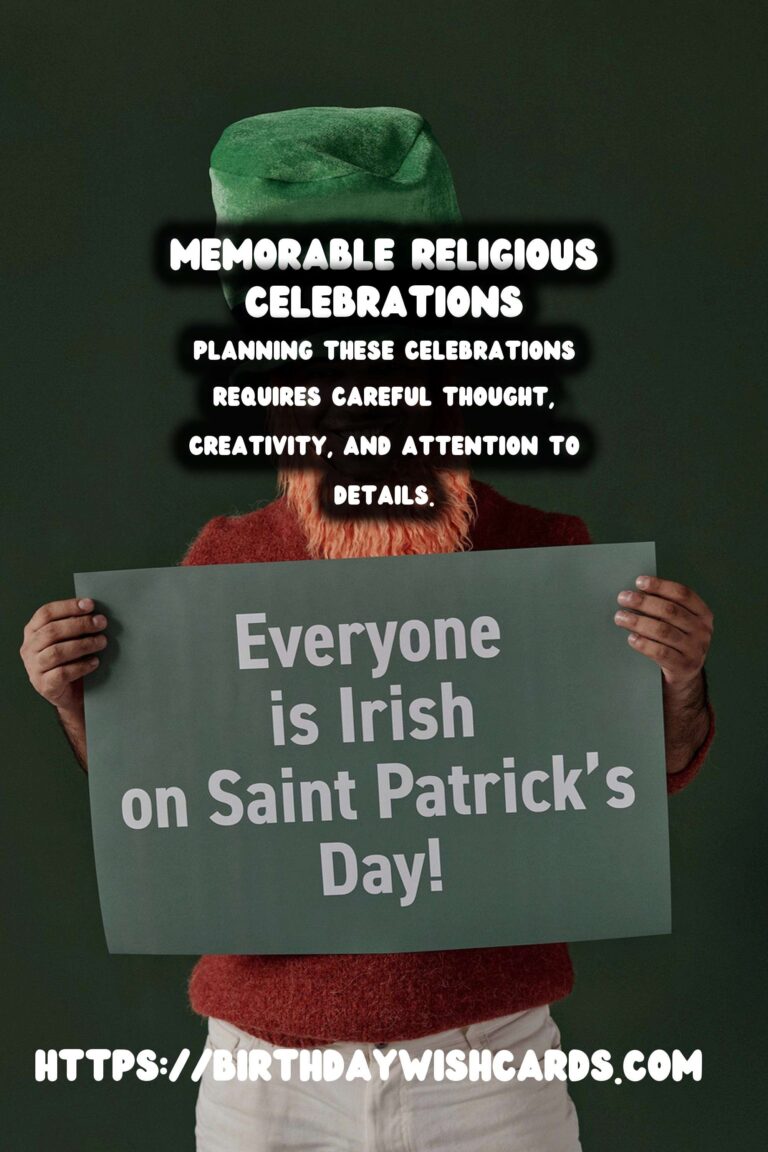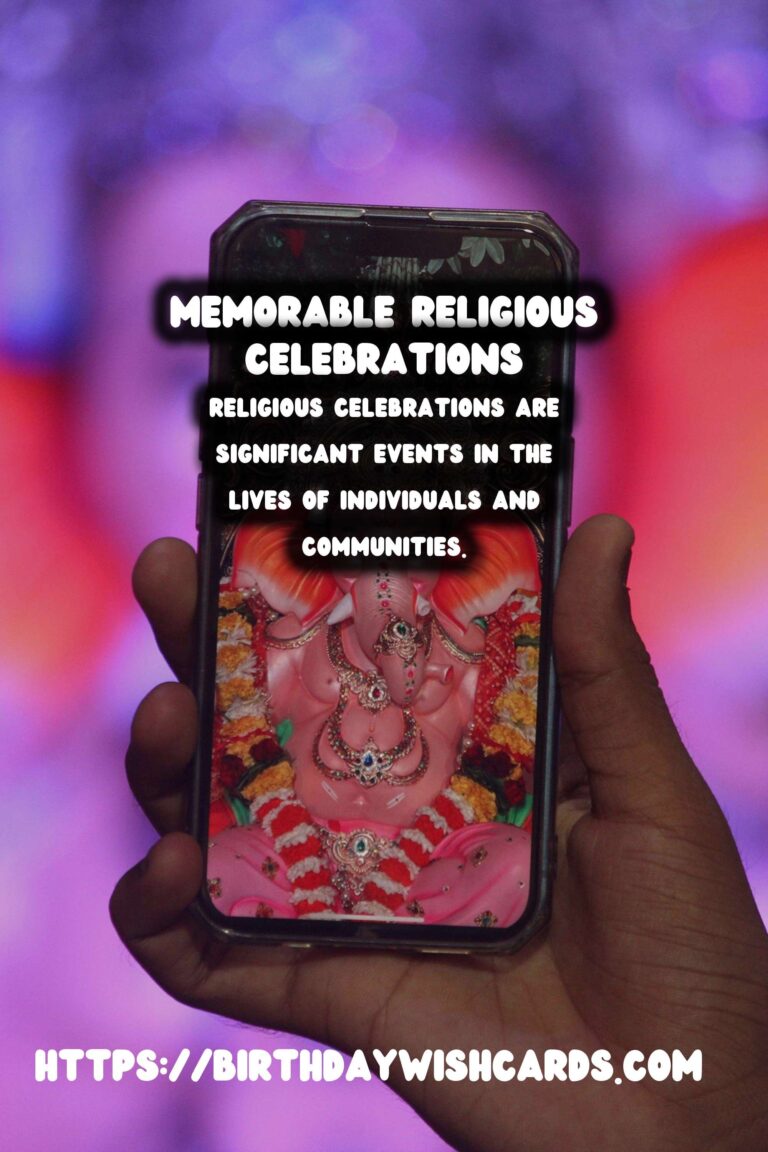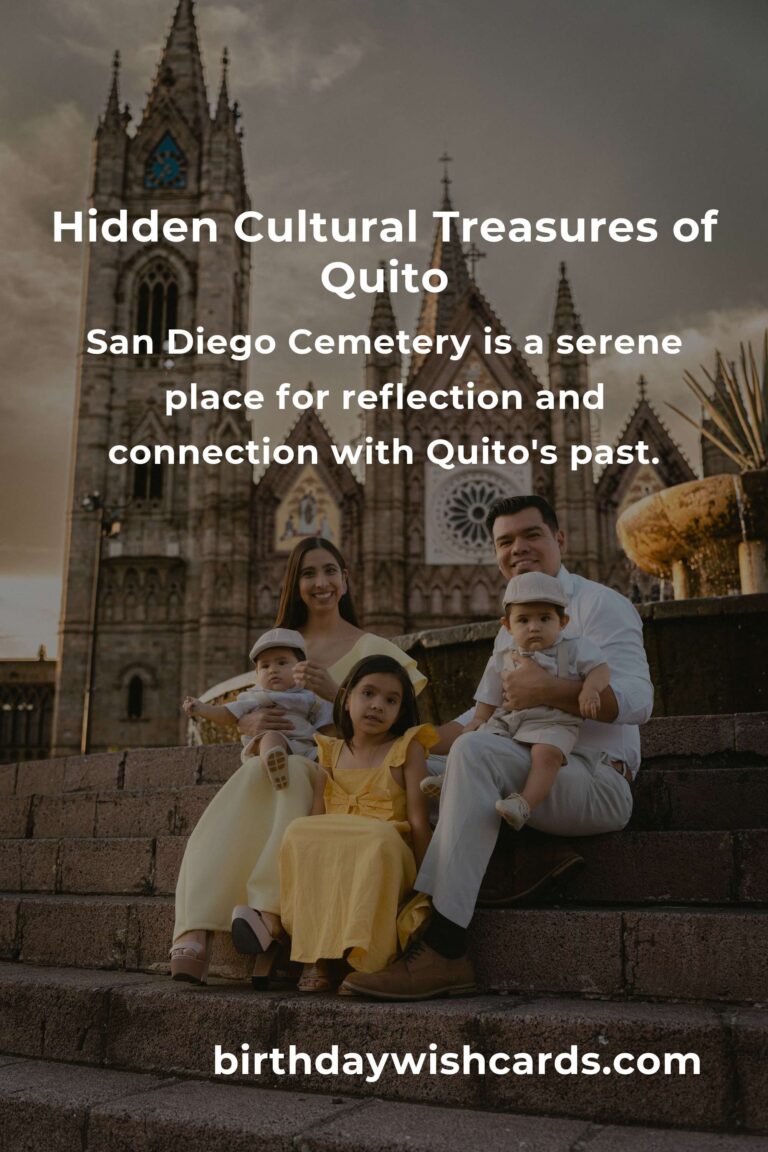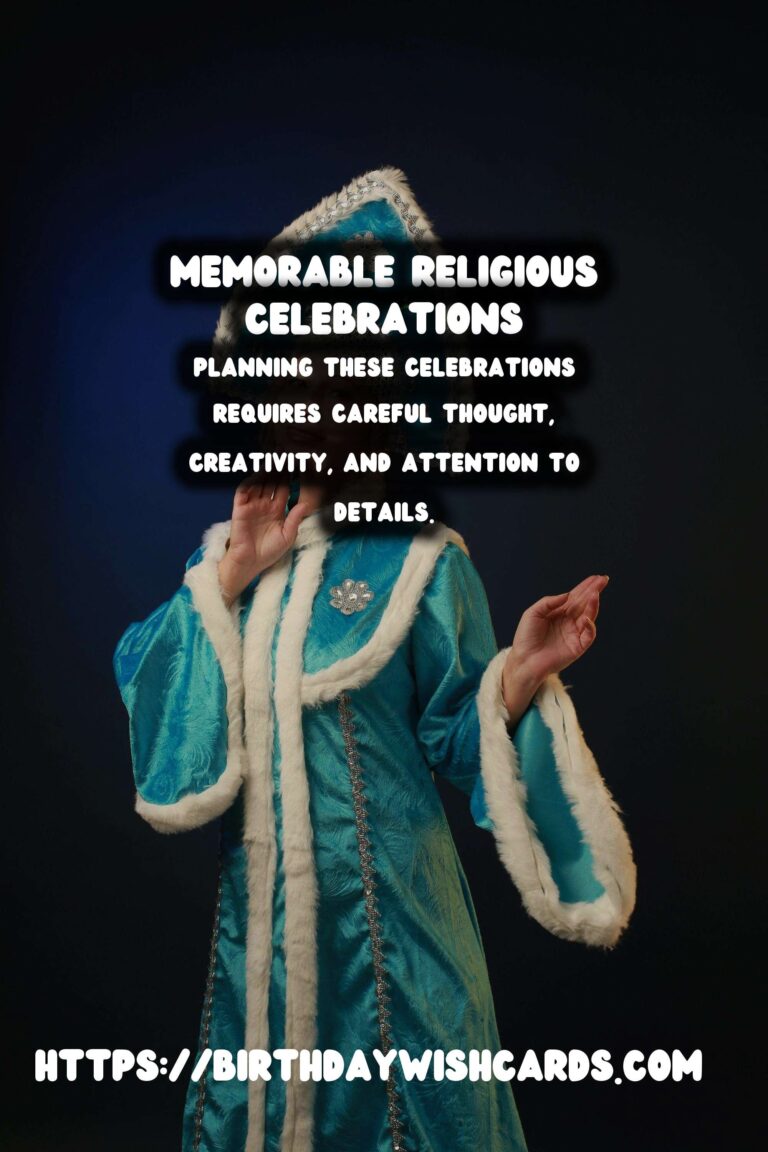
Religious celebrations are significant events in the lives of individuals and communities, often marking important seasons, events, or rites of passage. Planning these celebrations requires careful thought, creativity, and attention to details to ensure they resonate with participants and honor the religious aspects involved.
Understanding the Importance of Religious Celebrations
Religious celebrations serve various purposes, from commemorating historical events to providing a sense of community and belonging. They can deepen faith, foster connections between people, and create memorable experiences. In this article, we will explore memorable ways to plan religious celebrations that embody these values.
1. Set Clear Objectives
Before diving into the planning process, it is essential to set clear objectives for the celebration. Ask yourself what the main purpose is: Is it to educate the community, facilitate worship, or create a festive atmosphere? Having clear objectives will guide your decisions throughout the planning process.
2. Choose a Theme
Themes can shape the overall feel of a celebration. Consider seasonal themes, historical events, or specific narratives from your religious texts. A well-chosen theme can help unify all aspects of the event—from decorations to activities—making it a memorable occasion for all attendees.
3. Involve the Community
Engaging the community in the planning process creates a sense of ownership and enhances participation. Host brainstorming sessions to gather ideas or form committees that mix different age groups and backgrounds. This collaboration will result in a richer and more diverse celebration.
4. Plan Activities That Engage
Incorporate activities aimed at all age groups to ensure everyone feels included. Here are a few ideas:
- Workshops: Offer workshops that teach relevant religious practices or crafts.
- Cultural Performances: Invite groups to perform music, dance, or drama that reflect religious traditions.
- Interactive Stations: Set up stations where attendees can learn more about different religious practices.
5. Create a Thoughtful Program Schedule
Design a program that flows well, allowing time for worship, activities, and social interaction. Determine the duration for each segment and ensure there’s adequate time for breaks, allowing attendees to socialize and connect.
6. Offer a Variety of Food Options
Food plays an integral role in most religious celebrations. Consider offering a variety of dishes that might include:
- Traditional Foods: Serve dishes that are significant in your faith tradition.
- Diverse Cuisines: Reflect the diversity of the community by offering a range of food options.
7. Use Visual Elements Strategically
Decorations can create a welcoming atmosphere. Utilize:
- Symbols: Incorporate symbols that resonate with your religious beliefs.
- Lighting: Use lighting to create an ambiance pertinent to the celebration.
8. Incorporate Reflection and Prayer
Dedicating time for prayer or reflection during the celebration can be powerful. It allows attendees to connect on a deeper level with their faith and each other. You might include:
- Guided Prayers: Offer moments of guided prayer that reflect on the themes of the celebration.
- Reflection Stations: Set up quiet spaces where individuals can contemplate and engage in personal prayer.
9. Capture the Moments
Documenting the celebration will provide cherished memories for the community. Consider:
- Photography: Hire a photographer or designate someone to capture key moments.
- Video Recording: Record speeches or performances to share with those who couldn’t attend.
10. Follow-Up with Attendees
After the celebration, engage your community by following up. Send thank-you notes, share photos, and encourage feedback. This not only shows appreciation but also strengthens relationships within your community.
Conclusion
Planning a memorable religious celebration requires thoughtfulness, creativity, and community involvement. By following the above steps, you can create an event that not only honors your religious traditions but also fosters connection and shared joy among participants. Remember, the best celebrations are those that leave lasting memories in the hearts of everyone involved.
Religious celebrations are significant events in the lives of individuals and communities. Planning these celebrations requires careful thought, creativity, and attention to details. 
